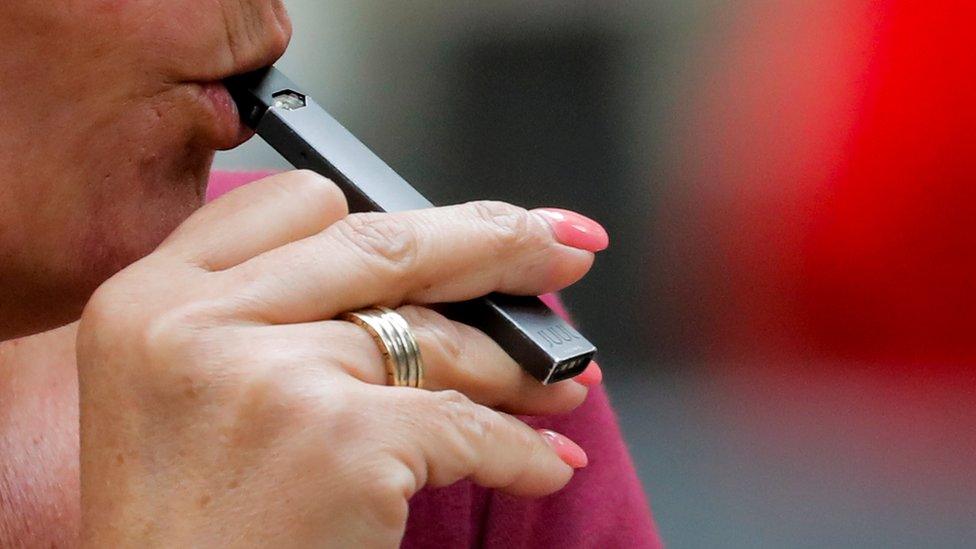San Francisco moves to ban e-cigarettes until health effects known
- Published
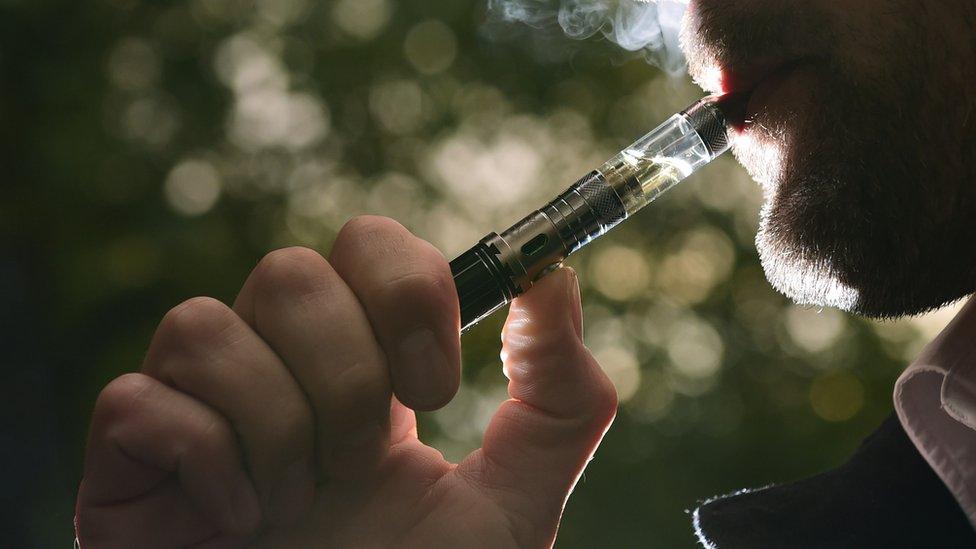
Anti-vaping activists say young people are deliberately targeted with flavoured products
Officials in San Francisco have proposed a new law to ban e-cigarette sales until their health effects are evaluated by the US government.
The law appears to be the first of its kind in the US and seeks to curb a rising usage by young people.
Critics, however, say it will make it harder for people to kick addiction.
A second city law would bar making, selling or distributing tobacco on city property and is aimed at an e-cigarette firm renting on Pier 70.
Last week, the Food and Drug Administration (FDA) - the national regulator - released its proposed guidelines, giving companies until 2021 to apply to have their e-cigarette products evaluated.
A deadline had initially been set for August 2018, but the agency later said more preparation time was needed.
San Francisco city attorney Dennis Herrera, one of the co-authors of the bill, which is yet to be approved, said reviews should have been done before they were sold.
"These companies may hide behind the veneer of harm reduction, but let's be clear, their product is addiction," said Mr Herrera.
He added that San Francisco, Chicago and New York had sent a joint letter to the FDA calling on it to investigate the effects of e-cigarettes on public health.
Anti-vaping activists say companies are deliberately targeting young people by offering flavoured products.
According to the US Centers for Disease Control and Prevention, the number of US teenagers who admitted using tobacco products "within the last 30 days" rose 36% between 2017 and 2018 - from 3.6m to 4.9m. It attributes this to a growth in e-cigarette use.
Last year San Francisco became the first US city to ban flavoured tobacco and vaping liquids, and already prevents smokeless tobacco from being used on playing fields.
Juul, one of the the most popular US e-cigarette firms, rents space on Pier 70.
In a statement, the firm said it supported cutting vaping among young people but only in a way that eliminated access to regular cigarettes.
It asked: "This proposed legislation begs the question - why would the city be comfortable with combustible cigarettes being on shelves when we know they kill more than 480,000 Americans per year?"
- Published5 February 2019
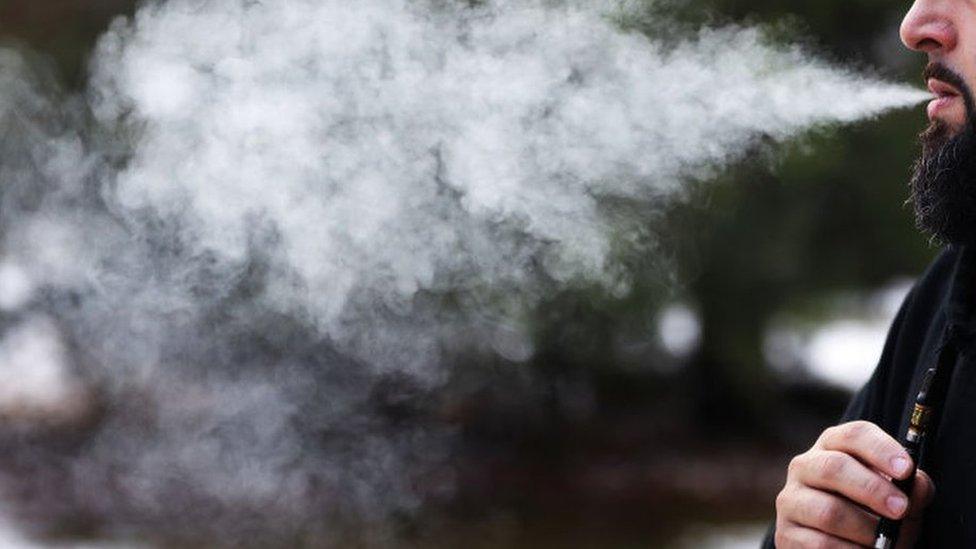
- Published30 January 2019
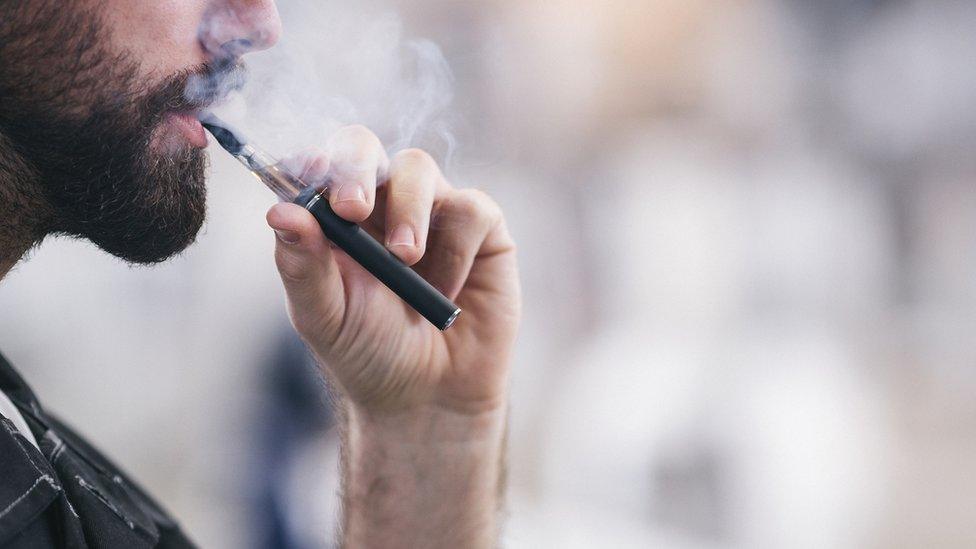
- Published17 December 2018
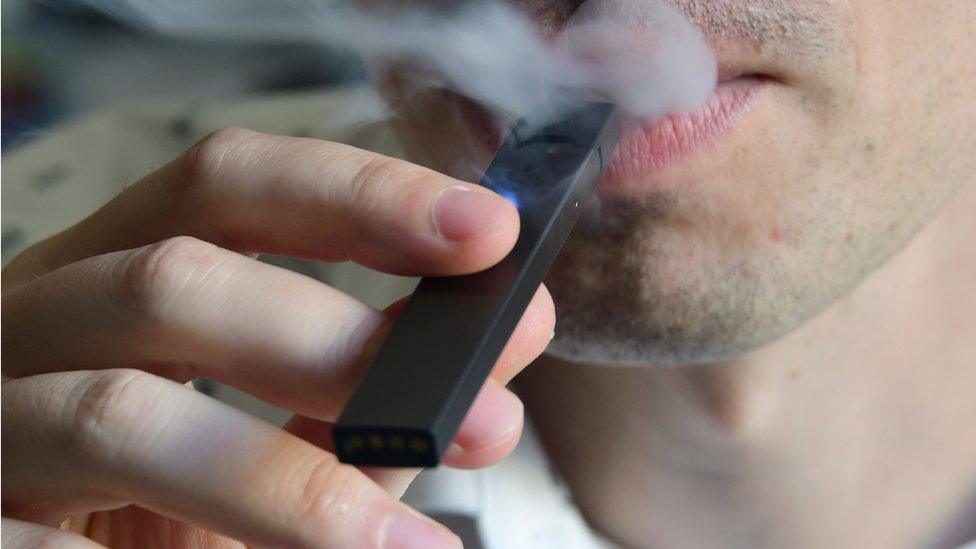
- Published13 November 2018
